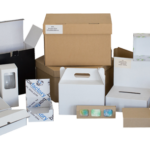Agricultural drones are revolutionizing the farming landscape. Today, farmers can yield compelling benefits beyond mere efficiency improvements. As precision farming’s cornerstone, drones surmount various challenges, bestowing farmers with various advantages driven by accurate data acquisition. Read below to learn the benefits of drones in agriculture.
Enhanced plant health monitoring:
Equipped with specialized imaging technology like the Normalized Difference Vegetation Index (NDVI), drones assess plant health through detailed color data. This proactive approach enables rapid issue identification, ensuring timely intervention to salvage crops and optimize yields.
Optimal field condition insights:
Meticulously mapping fields is one of the best drone applications for agriculture because it provides elevation data that uncovers variations. This empowers farmers to discern drainage patterns, wet/dry spots, and soil health indicators. Informed irrigation and precise fertilizer application enhance crop quality and sustainability.
Efficient planting and seeding:
Drones are transforming reforestation efforts, especially in challenging terrains. Automated drone seeders exemplify future potential, planting trees rapidly and efficiently in remote or hazardous areas, augmenting afforestation endeavors.
Precision spray application:
As evident in many regions, drone-based spray treatments ensure precise and targeted application, reducing chemical use and boosting productivity. Drones safeguard workers’ well-being and environmental health Maneuvering through complex landscapes.
Elevated security measures:
Drones bolster farm security by remotely monitoring extensive areas, safeguarding against theft and unauthorized access. Real-time aerial surveillance optimizes resource allocation, ensuring the safety of crops, livestock, and equipment.
Futuristic pollination assistance:
Innovative drone pollination research holds promise for future agriculture. Non-invasive drones could revolutionize pollination by autonomously aiding plant reproduction, presenting a potential solution to pollinator decline.
Time and cost savings:
Drones expedite various tasks, from monitoring crops to inspecting equipment. The efficiency gain translates into reduced labor and operational costs, enabling farmers to allocate resources more judiciously.
Sustainability and environmental stewardship:
Precision drone applications minimize resource wastage by targeting water, fertilizers, and pesticides. This sustainable approach promotes environmental well-being and reduces agricultural runoff.
Increased crop yields and quality:
Through vigilant monitoring and prompt interventions, drone camera applications increase crop yields and improve production quality. Identifying early signs of disease or stress ensures healthier, more abundant harvests.
Final thoughts:
Agricultural drones are reshaping farming paradigms, offering benefits that amplify productivity, sustainability, and profitability. As adoption and technology advances, the agricultural sector stands poised for a future marked by data-driven precision and innovative cultivation practices.





